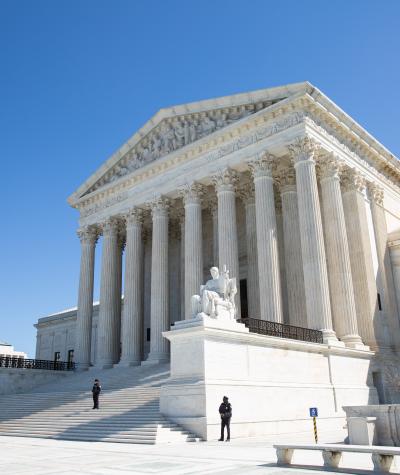On Tuesday, March 2, 2021, the U.S. Supreme Court is poised to hear a case, Brnovich v. DNC, that could have profound effects on the future of voting rights in America.
What is this case about?
This case is about two Arizona voting restrictions that are being challenged under Section 2 of the federal Voting Rights Act (VRA).
- The first requires voting officials to discard in their entirety ballots cast in the wrong precinct, rather than counting the ballots for the races the voter was eligible to vote in and simply not counting any local races the voter was not eligible to vote in because of the incorrect precinct.
- The second prohibits many forms of ballot collection where a voter gives their vote-by-mail ballot to someone else and that person delivers the completed and sealed ballot to be processed.
Given that it’s an argument over Arizona election rules, what are the national implications of this case?
The VRA is the nation’s most effective defense against racially discriminatory voting policies. It has prevented discrimination and the instatement of anti-voter laws across the country for decades.
Particularly over the past decade, there has been a concerted effort to chip away at the VRA. Proponents of Arizona’s restrictive laws want to dispense with or significantly limit Section 2 and are using this case as a vehicle to do that – not just in Arizona – but around the country.
It’s critical that the U.S. Supreme Court affirm that racial discrimination has no place in our elections and protect Section 2’s important role in achieving that result.
What are the impacts of these two laws on Arizona’s communities of color?
The evidence showed that, in Arizona, both of these laws are detrimental and that the ballot collection law was actually enacted because it would harm minority voters.
- Arizona’s ballot-collection law targets voters of color, who are more likely to rely on community efforts to aid with ballot-collection and delivery than white voters because of the distance to ballot drop-off centers, distance to a post office, and unreliability of mail service in Native American and low-income communities and communities of color.
- Arizona’s out-of-precinct policy, which does not count provisional ballots cast in-person on Election Day outside of the voter’s designated precinct, also targets voters of color, who are as much as two times as likely to cast an out-of-precinct ballot than white voters.
Does third-party ballot collection lead to fraud?
Many states allow community organizations, family members and/or friends to assist voters who need help delivering their sealed ballots. This safe and secure process helps voters who do not have reliable access to outgoing mail or transportation, or who otherwise need extra help getting their ballots delivered. States have checks and balances built into these processes to ensure they are secure.
Restrictions on these services disproportionately harm people who live in rural communities, low-income folks, people with disabilities, older voters, and Native Americans. Bad actors like Arizona Attorney General Mark Brnovich – who have a history of anti-voter sentiments and actions – are spreading disinformation to make it harder for Black and Brown voters to equally participate in our elections.
What will be the outcome of the case?
The VRA is the nation’s most effective defense against racially discriminatory voting policies, and it has prevented discrimination and removed voting barriers across the country for decades. Many justices have not weighed in on a Section 2 challenge. In Brnovich v. DNC, the U.S. Supreme Court should affirm the VRA’s vital role in preserving the right to vote by ruling that Arizona’s discriminatory laws violate Section 2.
When will this case be decided?
Exact decision timing predictions are notoriously difficult with the U.S. Supreme Court, but the court is expected to issue a decision in all this term’s cases by the end of June.
